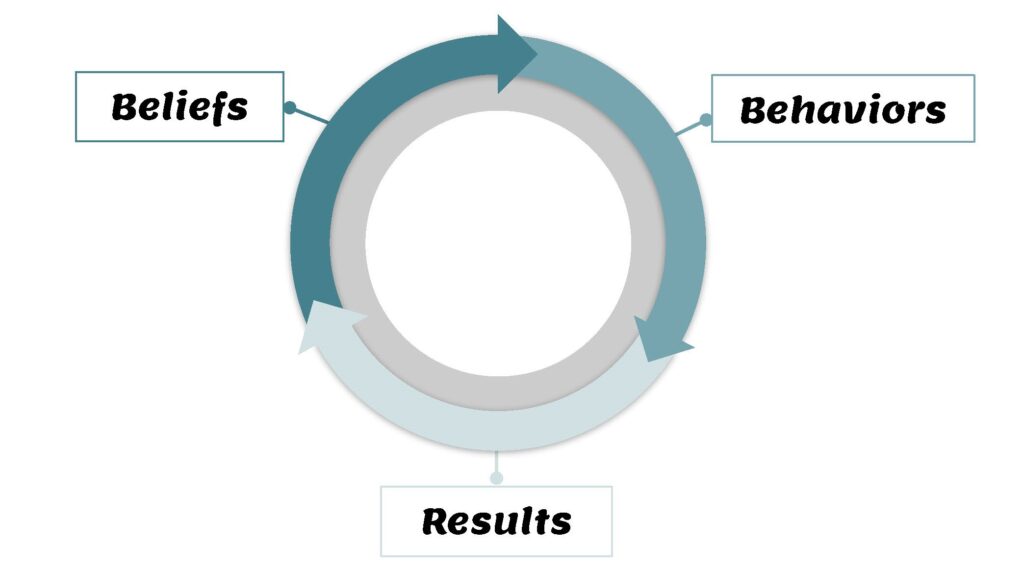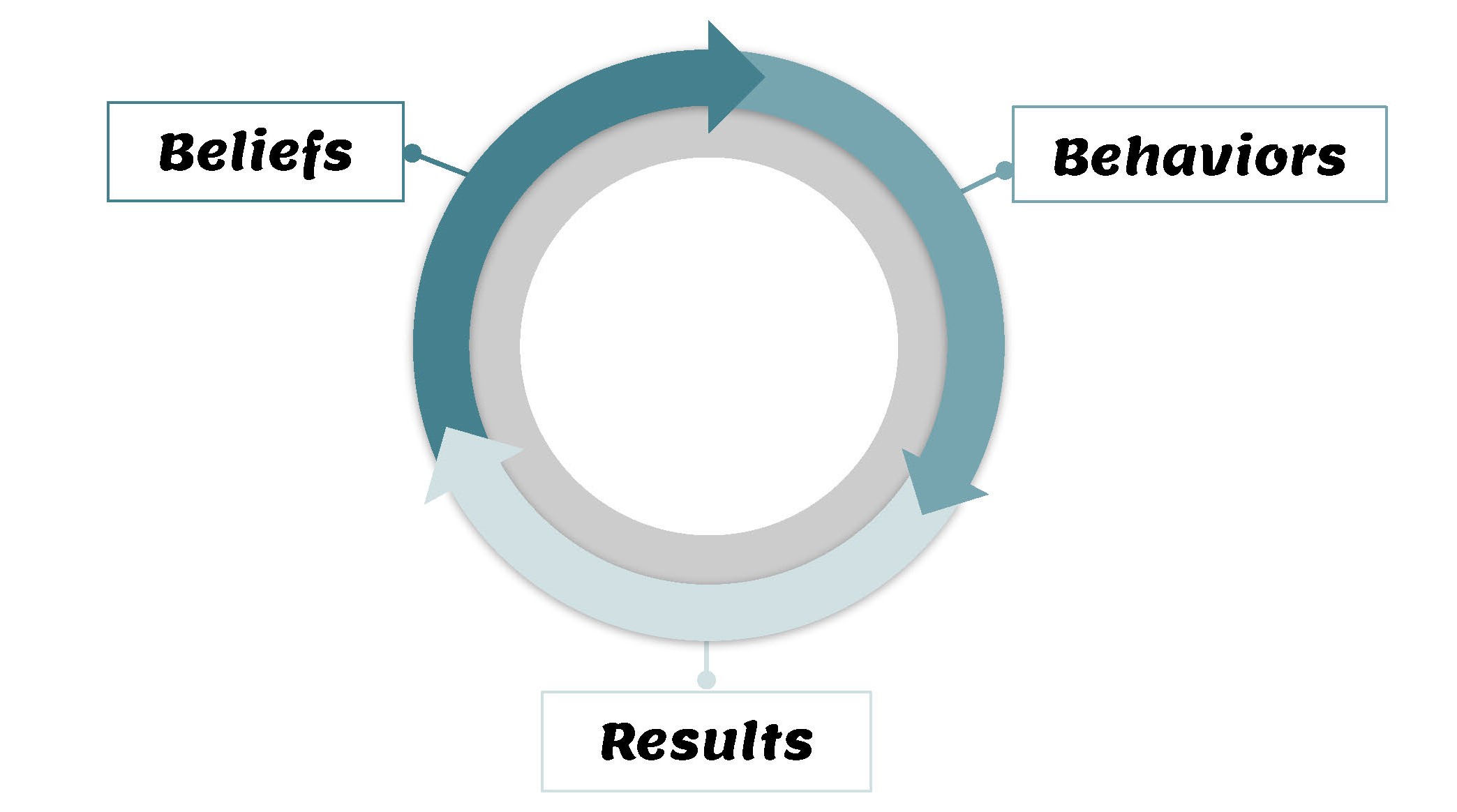In life, we are constantly learning and adapting to the circumstances around us. Through this, we start to develop patterns in our behavior. Those patterns become habits. Habits for the purposes of this post are our common tendencies, our behavior patterns. Habits come in simple forms, like how we squeeze our toothpaste or where we place our keys when we get home; but habits also exist in how we interact with others, both positively and negatively.
Habits are the brain’s way of forming efficiency of thought. As we do actions over and over, the way our brains process moves from the prefrontal cortex to a memorized action/motion. This becomes a task we accomplish automatically without needing as much time processing what to do. We see this when we drive to work every day and find we aren’t consciously thinking about the route, but simply driving it. You’ll recognize this if you’ve ever changed jobs after a long time at one location, and find yourself driving to the wrong office one morning.
The good news is that even though our brains wire in these automatic responses, the cortex is still processing what habits to activate at any given time, and this is what allows us the ability to form new habits and replace old ones that might no longer serve us or benefit us.
In relationships, we develop habits for how we interact, whether it is a working relationship with a boss or a coworker or the relationship we develop with our spouse & family. The choices we make when interacting with those people, when practiced regularly, form a pattern that becomes automatic over time.
When talking about a blended family, we are now working with the reality that we previously built habits in our relationship with our ex-spouse. Unfortunately, those habits might have been bad, to begin with, or could have been in response to abuse or neglect. In our new relationship, we bring those habits with us, but they can often times cause more harm than good. In our past, they might have been created to try to protect ourselves, or in response to an unhealthy interaction; but with a new relationship they could be keeping you from true intimacy and closeness.
If you know you have some habits to change, the first step is foundational for this process. That first step is believing that change is possible. It is having hope and believing that not only can you change your habits, but that those changes are worth it, and that they will result in more intimacy and closeness with those you love and cherish. Without this first step, you will not have the success that you want or the lasting changes you desire. If hope is difficult to see or you know your foundation is not as strong as it should be, I encourage you to read our previous posts on building a foundation. Those foundations can be incorporated into your new habits for a great impact on your relationship. I promise you, there is always hope, there is always the ability to change. Everyone has the choice to continue doing what they have been doing or to make changes in the pursuit of something different than what they have currently. Our past habits are what put us into the positions we have had in the past, and only by choosing a new path will we get a different outcome.

Just knowing the steps for how to change is not enough, we have to be ready and willing to make the changes. That starts with believing that you can. This is a fact for all changes, from our health and fitness to our interactions with others.
Start with changing your beliefs
Changing our behaviors changes the results we see. Those results then reinforce our beliefs and actions. One problem is that people often start with trying to change behaviors instead of beliefs, and don’t fully change them, or they don’t enact those changes long enough to see any results. Changes take time and intention, rarely does something change overnight. Sometimes, people do behavior changes with the wrong heart motivations. When that occurs, the results generally do not match up to expectations. Examine your heart and make sure that your motivation is for a healthy and mutually-satisfying relationship; not for selfish ends.
When entering a new relationship, we should re-evaluate some of our past habits. Look back at the patterns, both good and bad, from your previous relationships; and identify any that may be unhealthy. One pattern to look at is how you respond to various words, tones, or actions. For example, let me share some things that we have experienced in our relationship. I (Lucas) have developed a habit of retreating away from someone who is exhibiting what I think to be anger. Rather than stay in what feels like a position where I am being attacked, I will withdraw in hopes of coming back to the topic when we are not emotionally charged. Canda has experiences of that same type of withdrawal being used to hurt her by withholding affection and intimacy. To protect herself, she will retreat in turn. As a result, my personal habit of withdrawing to avoid a perception of her anger causes her to have emotions of feeling punished by rejection. Both of our habits separate us and remove communication, intimacy, and connection. It has taken intentional, ongoing effort to work on this issue.
Another example we personally have dealt with is in relation to parenting. We each had developed habits of what was acceptable during a meal. This included everything from whether we ate together, whether we prayed before a meal, whether kids were allowed to get up during the meal without finishing, as well as when they had to finish all of their food or didn’t. You could refer to these as personal boundaries with our children. We also had our own past experiences of what discipline looks like, including when and how to discipline. We have had to communicate with each other and develop new guidelines that work for our family together.
Since we are both unique individuals, with our different love languages and personalities, it is important to reevaluate all of our habits in how we interact. From whether we give a kiss or hug to each other in the morning before work, to whether we talk or text during the day, to how we interact in the evening after work and dinner. How much time do we spend together at home, versus time doing things on our own? When do we find time to converse deeply? Do you take time each day to build physical, or emotional intimacy with each other or does it get put on the back burner waiting for a weekend or vacation? We challenge you to not set it on a back burner but to instead change your habits to make it a daily activity. Do something every day that brings you closer to each other.
We have made it a goal for this blog to be a place of hope and inspiration, to focus on what marriage and a blended family should look like instead of simply pointing out all of the things that will ruin or destroy that blended family. In this case, we would like to include a few common bad habits we have both experienced and recognized in other relationships. Avoid harboring resentment towards each other, instead address quickly what upsets you rather than holding grudges. Avoid criticism of the other, especially in front of the children. It is better to have hard conversations while avoiding blame and negativity. Don’t allow the stress of blending your family to become your focus. Keep your focus on what you do want the relationship to be and the family dynamic to look like. Continue moving towards intimacy with each other. Be honest in love. Lastly, avoid placing ultimatums within your relationship. This leads to a power struggle, and your relationship loses.
Focus on the good habits you can begin developing. For example, lay the groundwork for good communication, and intentional time for communicating and building intimacy. Plan time for this to happen, plan time for dates and time away from the kids. As a blended family though, also plan time with the kids as you are developing new habits and new behaviors with them as well.
We want you to be intentional about changing your bad habits, and replacing them with good habits as you relate with your spouse and kids.


